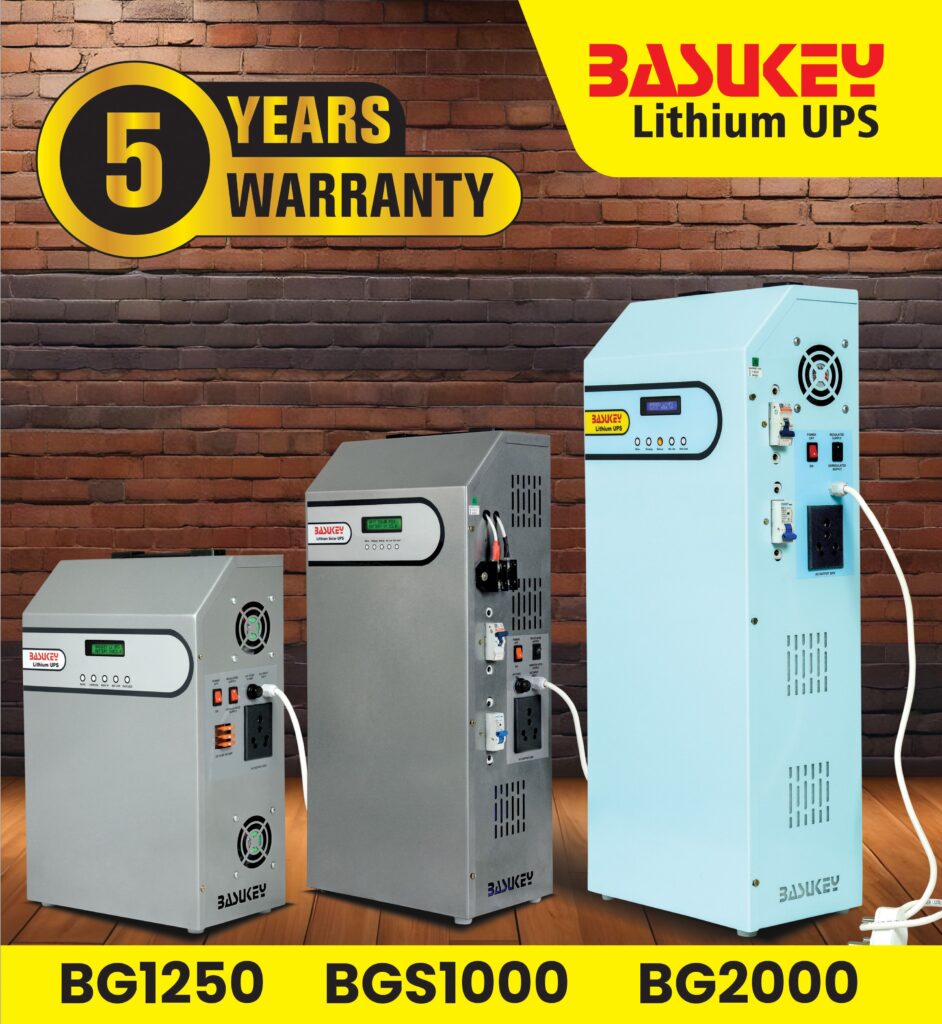Understanding Inverter Battery Capacity: What You Need to Know
Understanding Inverter Battery Capacity: What You Need to Know. When it comes to power backup systems, especially for homes, businesses, or critical facilities, choosing the right inverter battery is crucial for ensuring uninterrupted power supply. The inverter battery capacity plays a central role in determining how long your system can run during a power outage, and understanding it is key to making an informed decision. In this guide, we’ll explore what inverter battery capacity is, how it works, and what factors you should consider when selecting a battery for your needs.
What is Inverter Battery Capacity?
Inverter battery capacity refers to the amount of energy the battery can store and provide during a power failure. It’s usually measured in ampere-hours (Ah) or kilowatt-hours (kWh), and it indicates the total energy output the battery can supply to your system before needing a recharge.
Simply put:
- Ampere-hours (Ah) measure how much current a battery can supply over a given period (e.g., 100 Ah means the battery can supply 100 amps of current for one hour, or 10 amps for 10 hours).
- Kilowatt-hours (kWh) represent the total amount of energy (in kilowatts) a battery can provide over one hour. A 1 kWh battery can supply 1,000 watts of power for one hour.
The higher the battery capacity, the longer your inverter can keep your equipment running during an outage.

Why is Battery Capacity Important?
Choosing the right inverter battery capacity is critical because it directly impacts the duration of backup power you’ll have during a blackout. For example:
- A high-capacity battery can power more devices for longer periods, making it ideal for homes with larger power needs or businesses requiring continuous operation.
- A smaller capacity might suffice for essential appliances like lights, fans, and phones, but won’t be able to support heavy appliances like refrigerators or air conditioners for long.
An underestimated battery capacity could leave you without backup power during extended outages, while an overestimated capacity may result in unnecessary expense without providing proportional benefits.
How to Determine the Right Battery Capacity for Your Needs
To choose the correct inverter battery capacity, you need to assess your power needs, factoring in both how much power your devices require and how long you need the battery to last. Here’s a step-by-step guide to help:
1. Identify Your Power Requirements
Start by calculating the total wattage of the devices you need to power during an outage. For instance:
- LED lights: 10-20 watts each
- Fan: 75-100 watts
- Refrigerator: 150-400 watts
- Air conditioner: 1,000-2,000 watts
Add up the wattage of all the devices you wish to keep running during a blackout.
2. Calculate the Desired Backup Time
Next, determine how long you want the inverter battery to keep those devices running. For example:
- If your total power consumption is 500 watts and you need 4 hours of backup time, you will need a battery that can provide at least 500 watts x 4 hours = 2,000 watt-hours (or 2 kWh).
3. Consider Battery Voltage
Most inverters work with either 12V, 24V, or 48V batteries. The voltage of the battery will influence the capacity and size of the battery required for your system. Higher voltage systems (like 24V or 48V) are often more efficient and can handle larger loads with smaller batteries compared to a 12V system.
Basukey Lithium UPS: A Reliable Choice for Battery Capacity
When selecting an inverter battery for your home or business, Basukey Lithium UPS systems stand out as an ideal solution due to their high efficiency, long lifespan, and advanced energy management.
Why Choose Basukey Lithium UPS?
- High Energy Density: Basukey Lithium UPS batteries are known for their high energy density, which means they can store more energy in a smaller package. This makes them ideal for homes or offices where space is limited but reliable backup power is needed.
- Extended Battery Life: Lithium-ion technology, like that used in Basukey, offers a longer lifespan (10-15 years) compared to traditional lead-acid batteries (3-5 years). This ensures reliable performance over time, minimizing the need for costly replacements.
- Faster Recharge Times: Basukey Lithium UPS batteries recharge much faster than traditional batteries, so your system is ready to go in less time, providing a faster recovery from power interruptions.
- Scalable Capacity: Depending on your needs, Basukey Lithium UPS systems are easily scalable, allowing you to increase your system’s capacity by adding additional batteries. This makes them a flexible option for homes, businesses, or even industrial operations that may expand over time.
- Eco-Friendly and Sustainable: Lithium-ion batteries are more environmentally friendly than lead-acid batteries. They produce fewer emissions, have a lower carbon footprint, and offer recyclable components, making them a sustainable power solution.
Battery Capacity: Key Takeaways
Choosing the right inverter battery capacity is essential for maximizing the effectiveness of your backup power system. By understanding your power requirements, desired backup time, and the voltage compatibility of your system, you can make an informed choice that ensures you have reliable power when you need it most. If you’re looking for a long-term solution with fast recharge times, scalable capacity, and sustainable power, Basukey Lithium UPS is an excellent choice to consider. With advanced technology and superior performance, Basukey provides optimal inverter battery capacity for homes, businesses, and critical systems. Whether you’re powering essential devices at home or securing your business’s operational continuity, Basukey Lithium UPS ensures that you never have to worry about losing power again.
